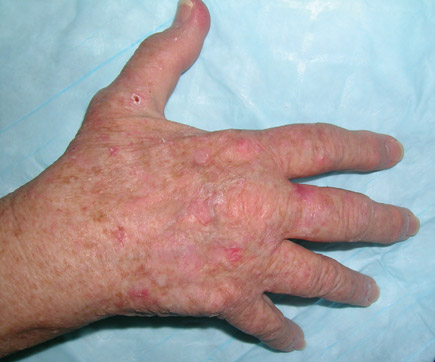ACP issues telemedicine recommendations
ACP released a position paper on the use of telemedicine, offering more than a dozen policy statements and recommendations for practice and reimbursement.
ACP recently released a position paper on the use of telemedicine, offering more than a dozen policy statements and recommendations for its practice and reimbursement.
- ACP supports the expanded role of telemedicine as a method of health care delivery that may enhance patient-physician collaborations; improve health outcomes; increase access to care and members of a patient's health care team; and reduce medical costs when utilized as a component of a patient's longitudinal care.
- ACP believes a valid patient-physician relationship must be established for a professionally responsible telemedicine service to take place. A telemedicine encounter can establish a patient-physician relationship through real-time audio/visual technology. A physician using telemedicine who has no direct prior contact or existing relationship with a patient must: 1) Take appropriate steps to establish a relationship based on the standard of care required for an in-person visit, or 2) Consult with another physician who does have a patient-physician relationship and oversees the patient's care.
- ACP recommends that telehealth activities address the needs of all patients without disenfranchising financially disadvantaged populations or those with low literacy or low technological literacy.
- ACP supports the ongoing commitment of federal funds to support the broadband infrastructure needed to support telehealth activities.
- ACP believes physicians should use their professional judgment as to whether the use of telemedicine is appropriate for a patient. Physicians should not compromise their ethical obligation to deliver clinically appropriate care for the sake of new technology adoption.
- ACP recommends physicians ensure telemedicine is secure and complies with federal and state security and privacy regulations.
- ACP recommends that telemedicine be held to the same standards of practice as if the physician were seeing the patient in person.
- ACP recommends physicians who use telemedicine should be proactive in protecting themselves against liabilities and ensure their medical liability coverage includes the provision of telemedicine services.
- ACP supports the ongoing commitment of federal funds to establish an evidence base on the safety, efficacy, and cost of telemedicine technologies.
- ACP supports a streamlined process to obtaining multiple medical licenses that would facilitate the ability of physicians and other clinicians to provide telemedicine services across state lines while allowing states to retain individual licensing and regulatory authority.
- ACP supports the ability of hospitals and critical access hospitals to “privilege by proxy” in accordance with the 2011 Centers for Medicare and Medicaid Services (CMS) final rule allowing a hospital receiving telemedicine services (distant site) to rely on information from hospitals facilitating telemedicine services (originating site) in providing medical credentialing and privileging to medical professionals providing those services.
- ACP supports lifting restrictions that currently limit reimbursement of telemedicine and telehealth services by Medicare to those that originate outside of Metropolitan Statistical Areas (MSAs) or for patients in Health Professional Shortage Areas (HPSAs).
- ACP supports reimbursement for appropriately structured telemedicine communications, whether synchronous or asynchronous and whether solely text-based or supplemented with voice, video, or device feeds in public and private health plans, as this form of communication may be an alternative to a face-to-face encounter.
A summary of the position paper was published online Sept. 8 by Annals of Internal Medicine.



